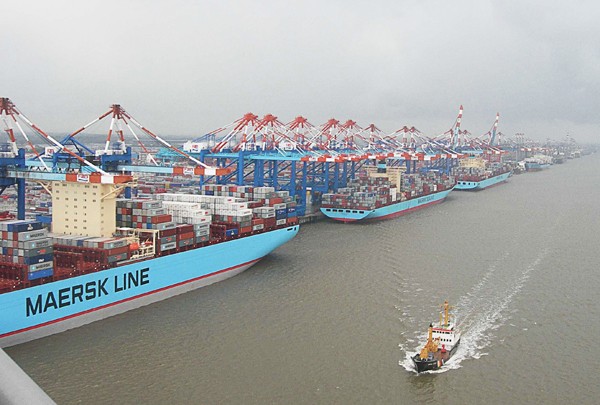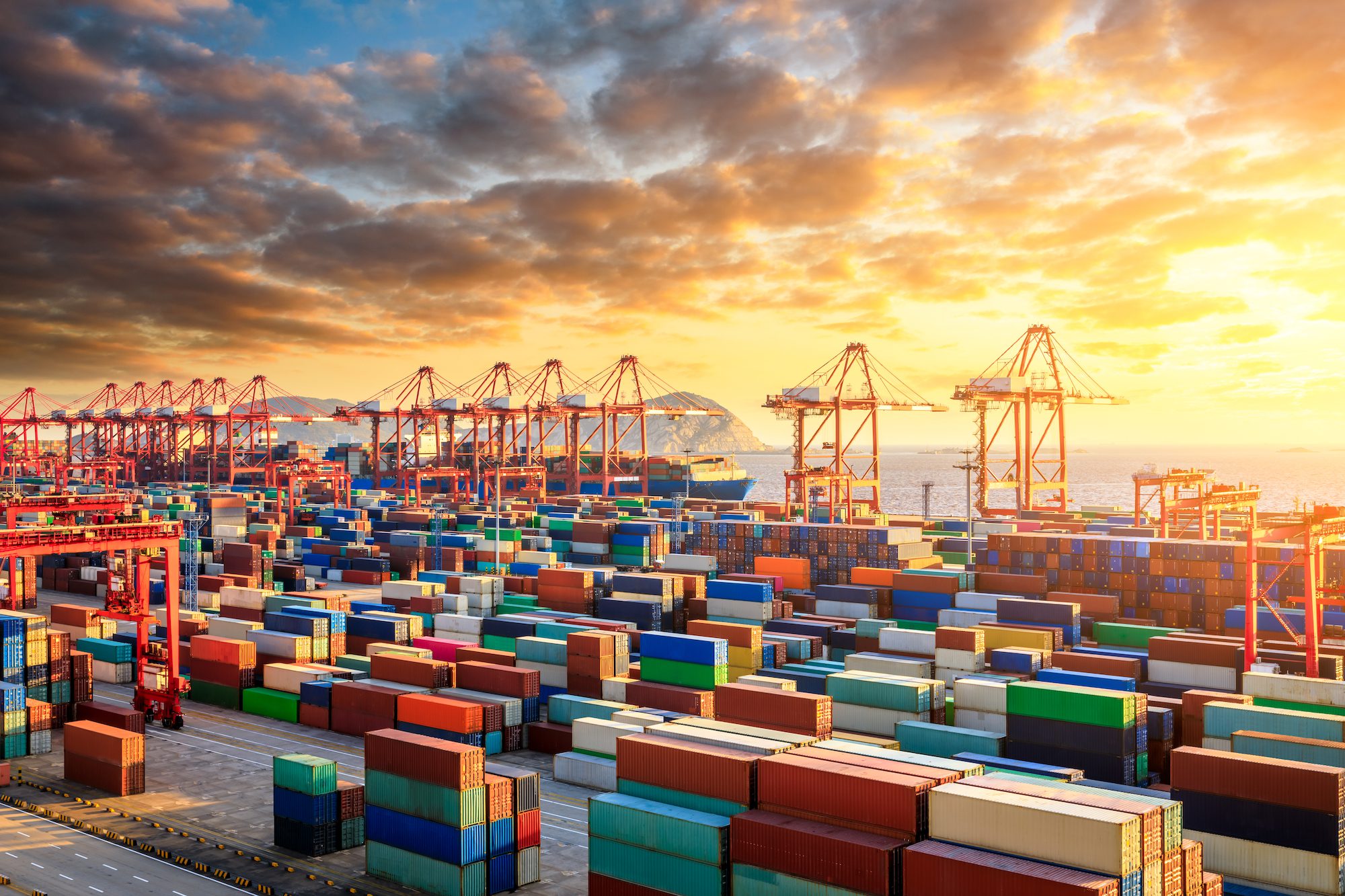Image courtesy Maersk Line
By Clement Tan and Chris Jasper
June 17 (Bloomberg) — China blocked the formation of a global alliance by the world’s three biggest shipping lines in a surprise move that ignored Western approval of the plan and sent A.P. Moeller-Maersk A/S shares tumbling the most in two years.
The Chinese Ministry of Commerce said on its website that the proposed P3 vessel-pooling accord, which also included Mediterranean Shipping Co. and CMA CGM SA, would “restrict competition” on the busiest Asia-Europe container routes.
“The decision does come as a surprise,” Maersk Chief Executive Officer Nils Smedegaard Andersen said in a interview after the Copenhagen-based company announced that the P3 plan would now be scrapped. “I did not foresee problems in China. We only received what I would call positive feedback.”
Maersk and its two allies said last June that they’d agreed to establish an operational pact with the aim of reducing costs on Asia-Europe, trans-Atlantic and trans-Pacific routes. Container lines have been battling industry overcapacity after a boom in ship orders collided with the global financial crisis, triggering the worst slump in prices for the carriage of cargo since containerization became global in the 1970s.
Shares of Maersk, the world’s biggest container line, fell as much as 8.3 percent, the steepest intraday decline since May 16, 2012. They were trading 5.9 percent lower at 13,210 kroner as of 3:11 p.m. in Copenhagen, paring 2014’s gain to 12 percent and giving a market value of 285 billion kroner ($52 billion).
U.S., EU Approval
The company accepts China’s verdict and with no alternative plan in hand it will now “give up on P3,” Andersen said. CMA CGM, based in Marseille, France, and MSC, which has its headquarters in Geneva, are both closely held.
“The surprise here is that China has not approved this plan even after regulators in the U.S. and European Union have given it the goahead,” said Lawrence Li, China transportation analyst at UOB Kay-Hian Investment Consulting in Shanghai. “And antitrust laws there are tougher.”
The companies had planned to commit 255 vessels deployed on 29 trade loops to a joint center that would have run a combined fleet independently. Maersk was slated to contribute 42 percent of the total, including its Triple-E class, the largest-ever container ships with a capacity of 18,000 boxes.
China’s rejection of P3 comes after the U.S. Federal Maritime Commission approved the alliance in March and the European Commission closed an EU antitrust probe this month.
‘Numerous Discussions’
Trade has been a mainstay of China’s economic development since former leader Deng Xiaoping first opened up the nation more than three decades ago. It entered the World Trade Organization in 2001, helping secure annual growth in excess of 10 percent on average in the following decade.
While policy makers in the world’s second-largest economy sought to reduce its reliance on commerce in the aftermath of the 2009 recession, exports remain a source of strength.
Shipments abroad advanced 7 percent in May from a year earlier, with imports down 1.6 percent, a government report showed. China recorded a $35.9 billion surplus for the month.
The Commerce Ministry said today that the P3 plan might have benefited Maersk, MSC and CMA CGM at the expense of other operators, and that in “numerous discussions” the applicants had failed to show that the positive elements would outweigh any adverse impact. The three companies — which had always pitched the arrangement as “operational, not commercial” — control a combined 46.7 percent market share, it said.
‘Good Proposition’
The “closely coordinated joint operations” proposed in P3 would also have been substantially different from the “loose cooperation” of current alliances, the ministry said.
The two main existing accords are G6, which includes Germany’s Hapag-Lloyd AG and five Asian carriers, and CKYHE, which features Cosco Container Lines Co., the Chinese No. 1.
Maersk CEO Andersen said the partners had worked hard to address the concerns of all regulators involved.
“We thought it was a good proposition and would allow us to get cost out and reduce fuel consumption,” he said by phone. “There was no impact on the market side. We never saw this as consolidation and neither did the U.S. and Europe.”
Maersk has a 14.9 percent share of the global market, based on the number of containers available in its own fleet and as chartered capacity, according to Alphaliner, which provides a daily update. MSC has 13.4 percent and CMA CGM 8.6 percent.
The P3 pact had initially aimed to commence operations during the current quarter, before Maersk said May 21 that the start date had slipped to autumn amid regulatory scrutiny.
Maersk Line, the company’s container unit, more than doubled its net income to $454 million in first quarter as lower costs and higher volumes countered the drop in rates.
Drewry Maritime Research analyst Neil Dekker said P3 was so large that plans for fleet deployment and a London control center will have been well advanced, though China’s ruling won’t hurt Maersk Group’s earnings targets, according to Andersen.
“P3 would have been nice to have but it’s not a must- have,” he said. “Maersk is in a very strong position. We are very competitive and making very good profits.”
–With assistance from Chris Anstey in Hong Kong and Nicholas Brautlecht in Hamburg.
Copyright 2014 Bloomberg.

 Join The Club
Join The Club











